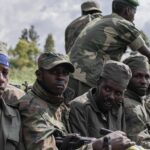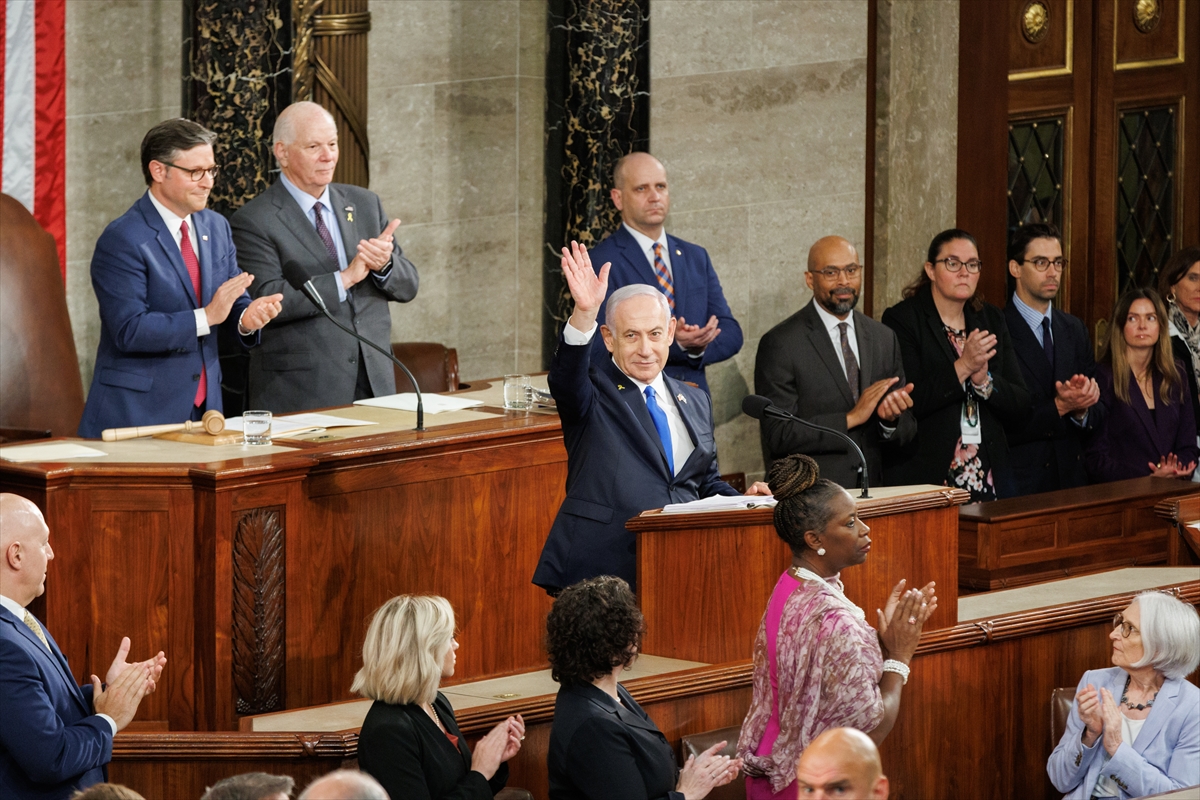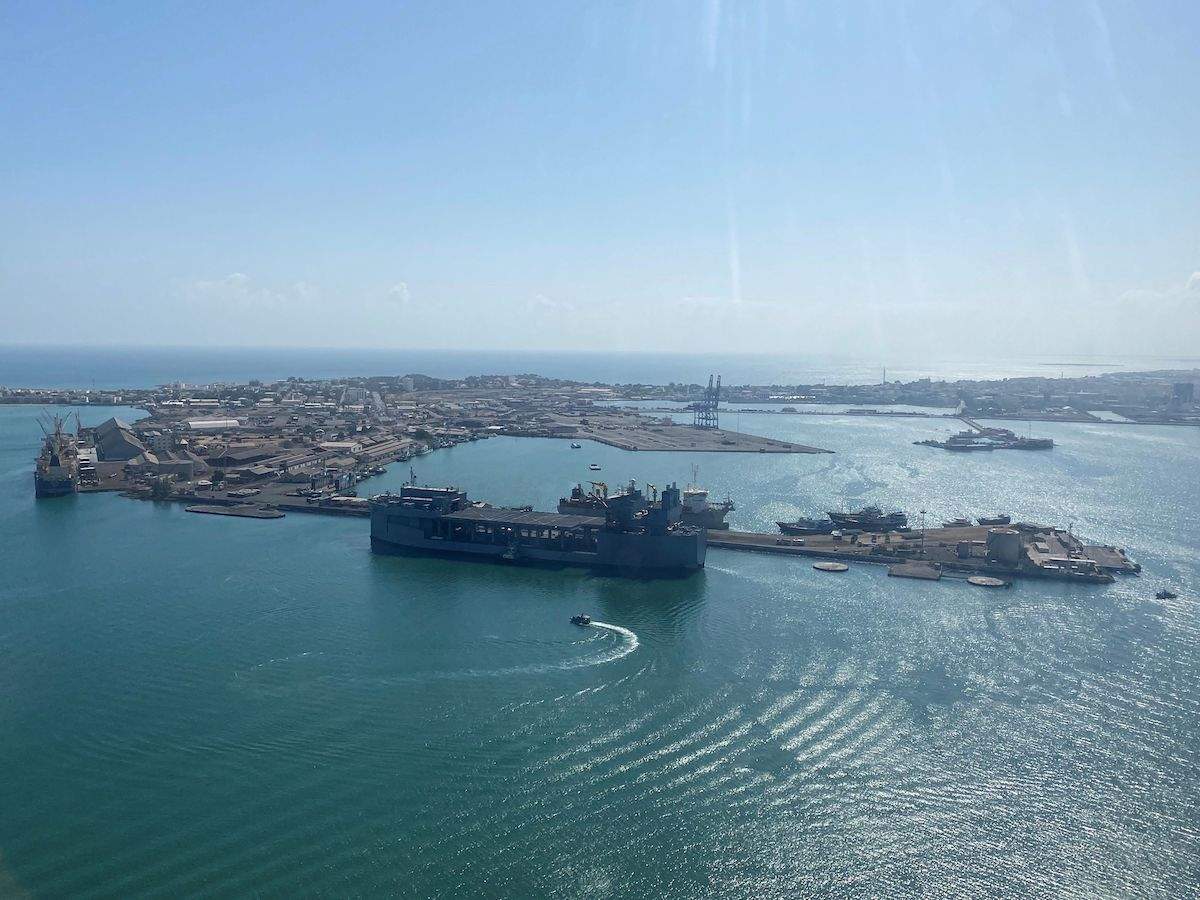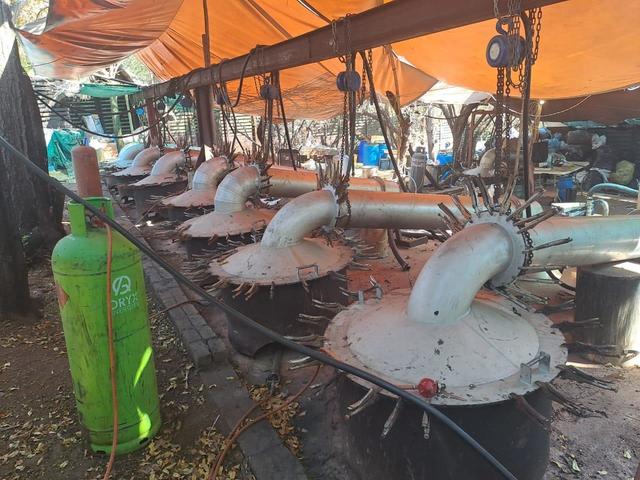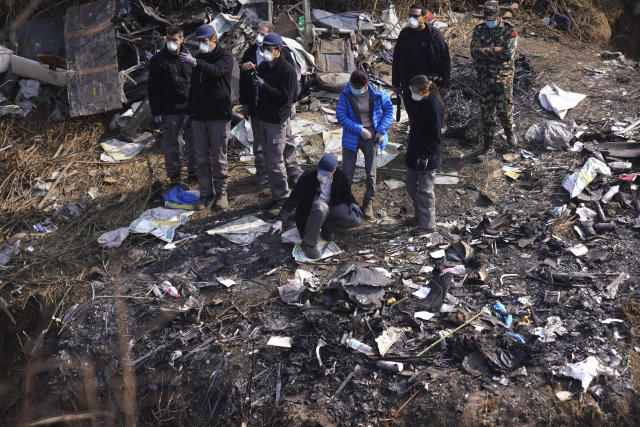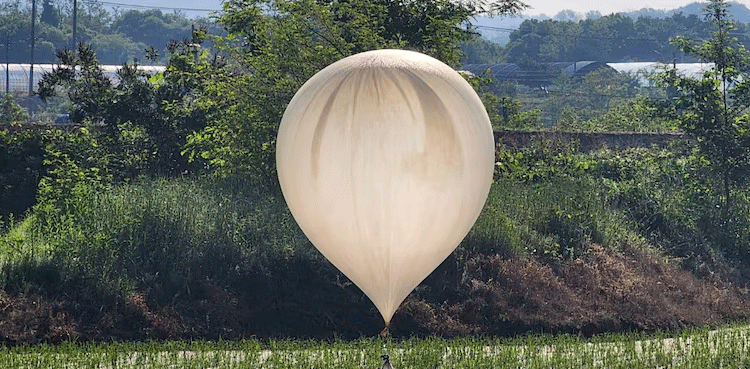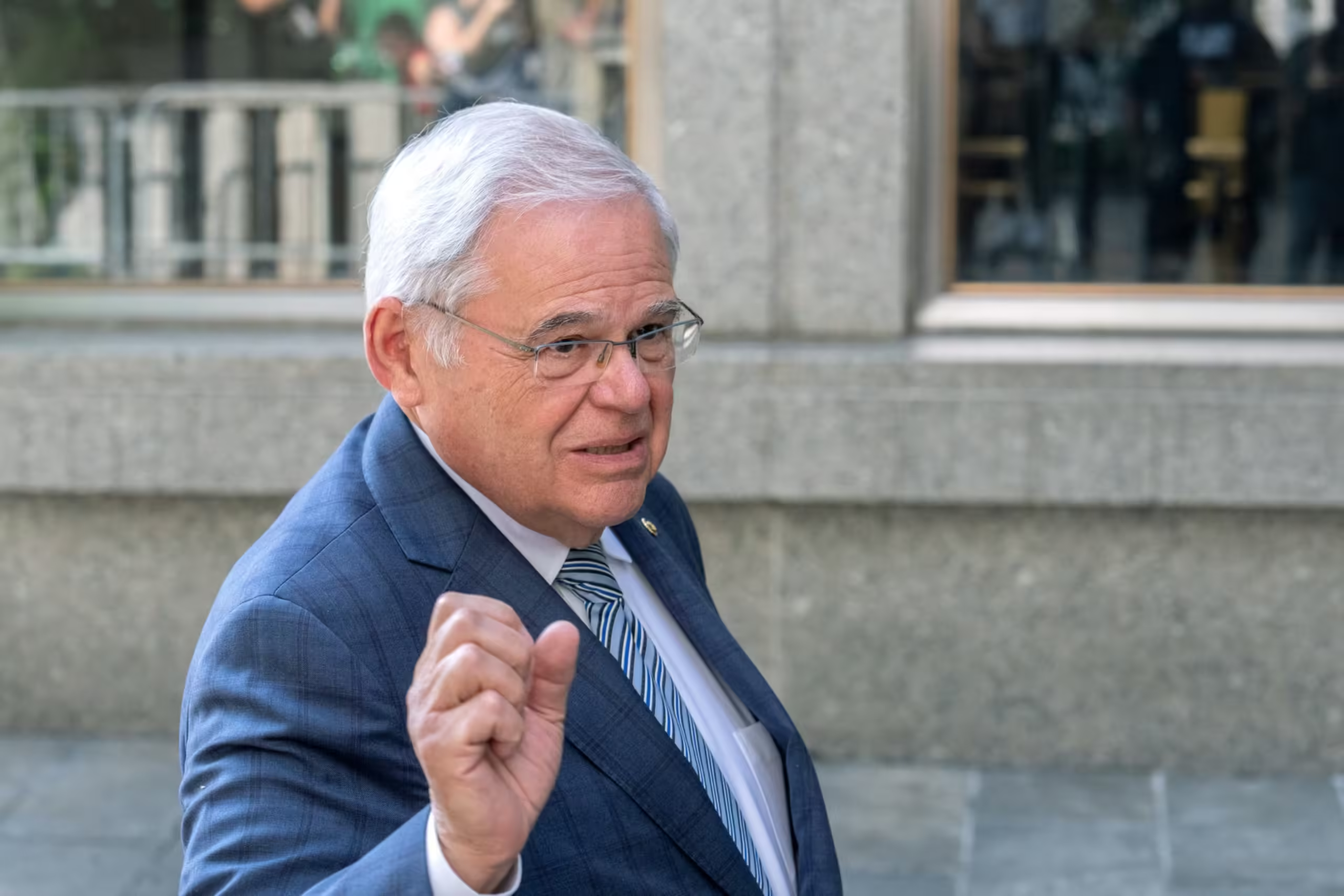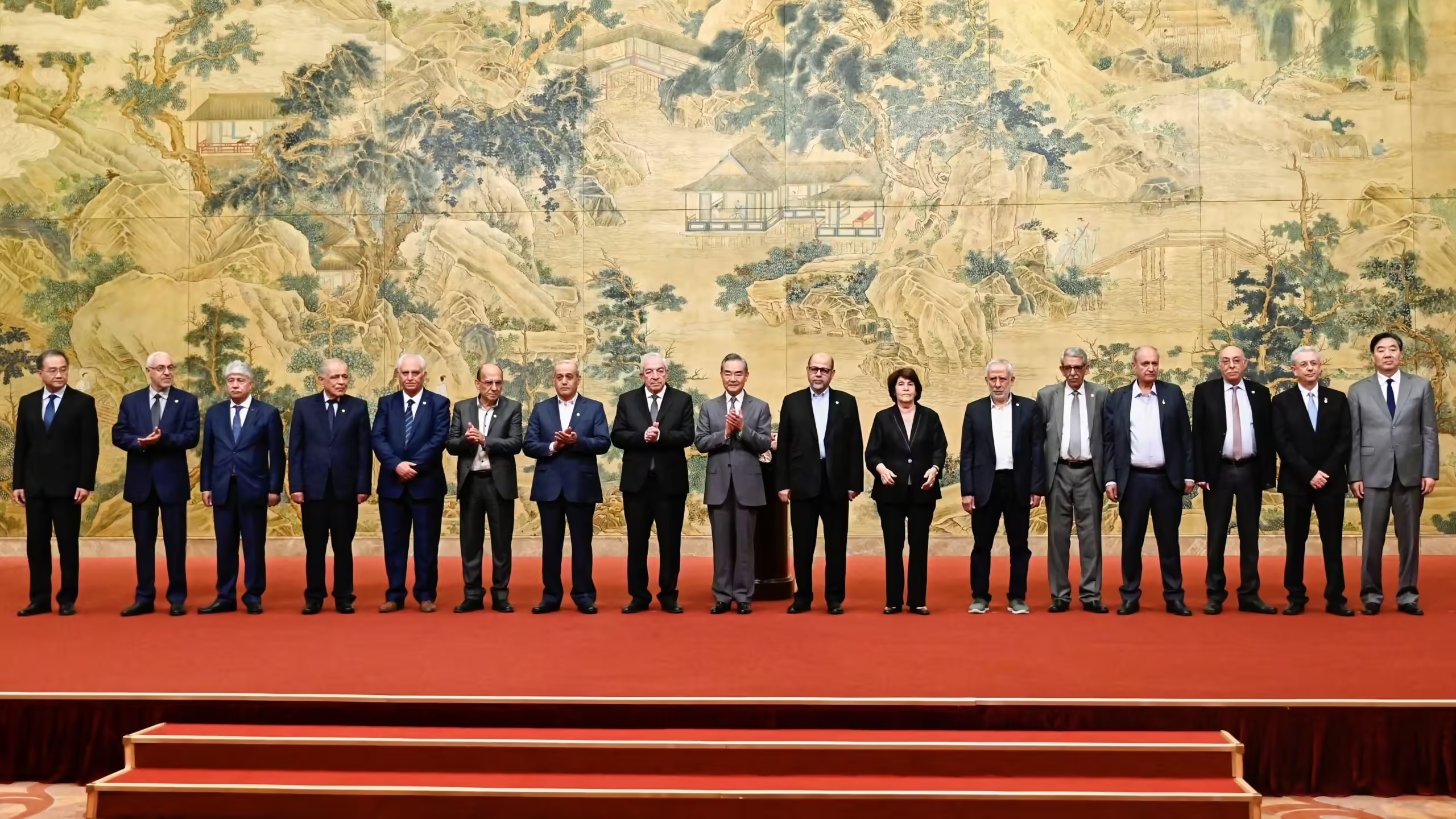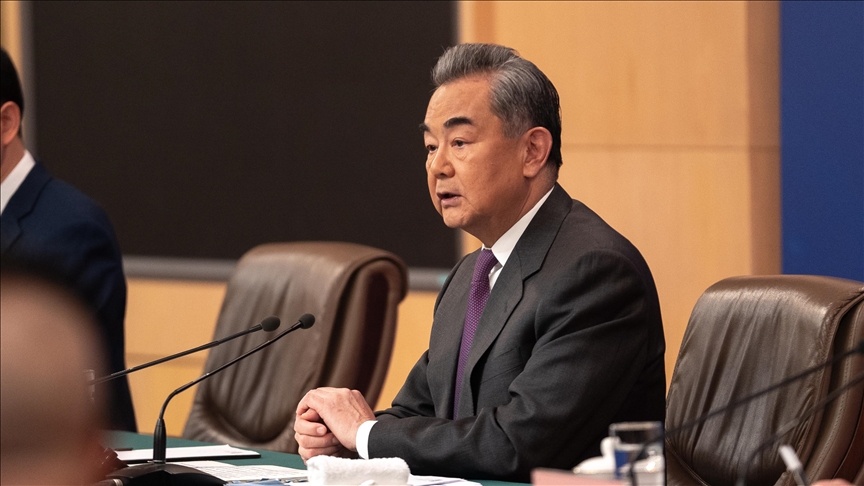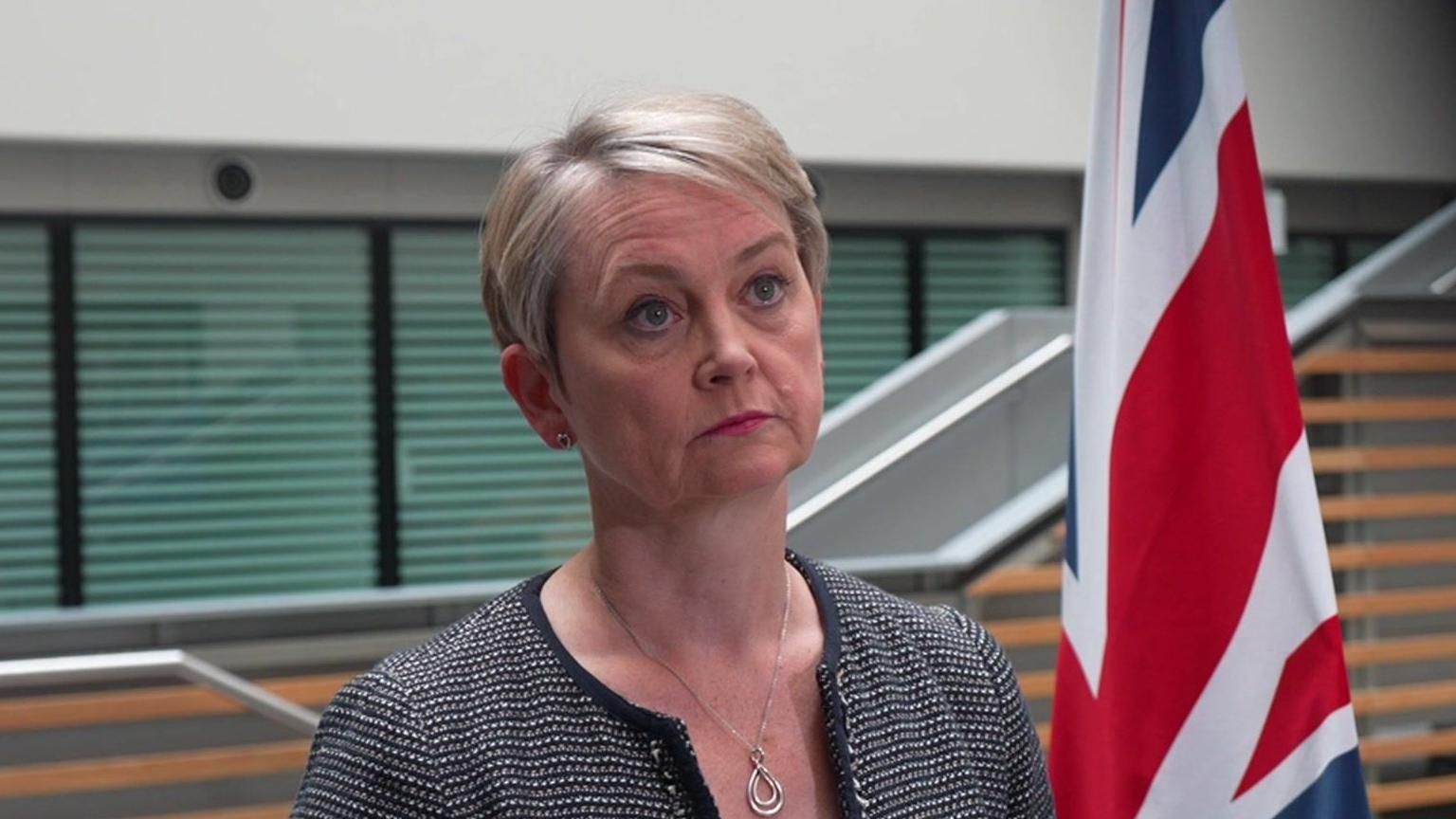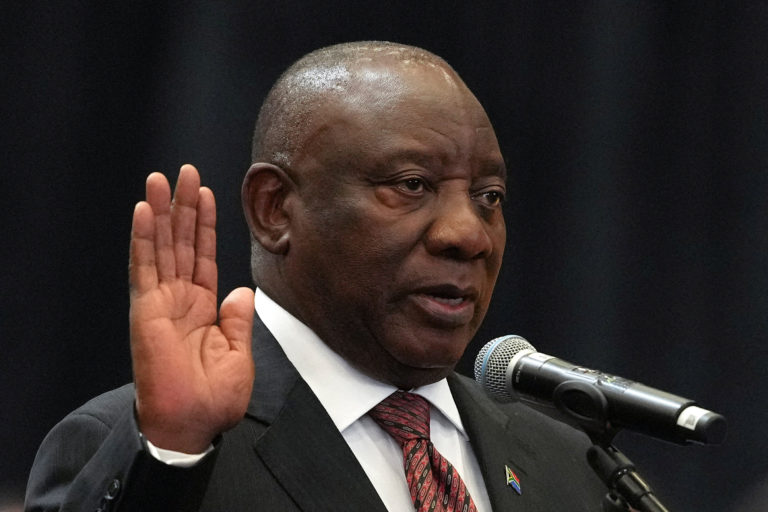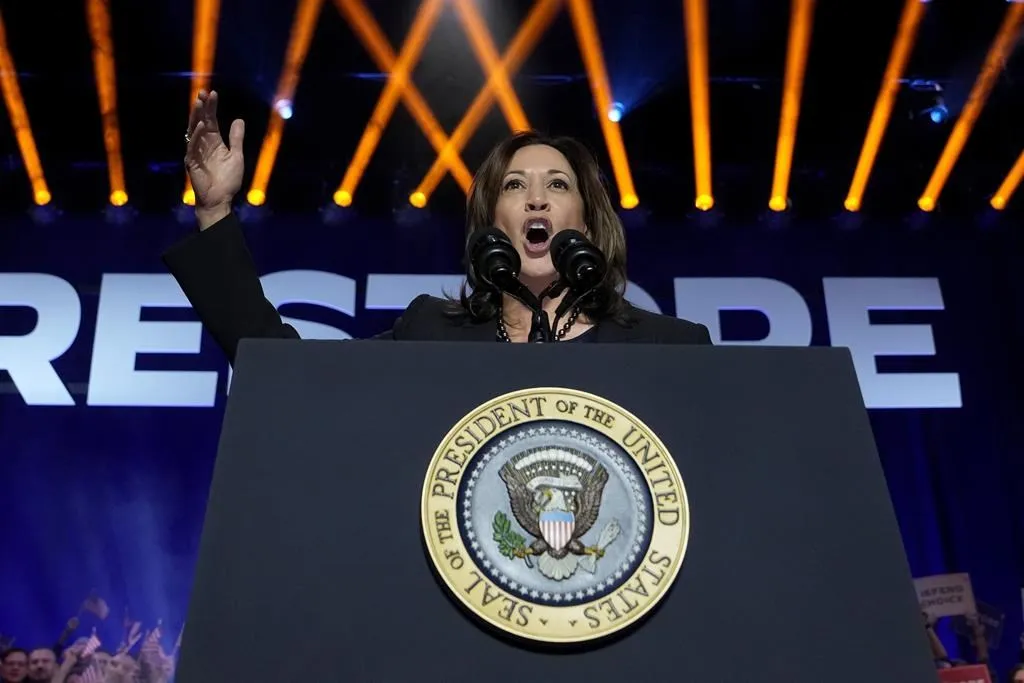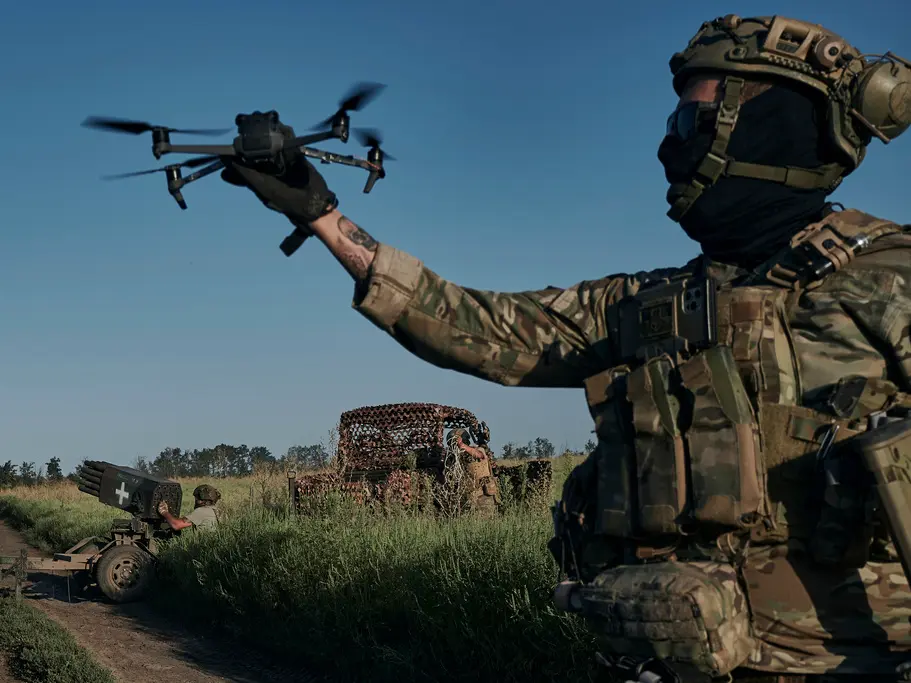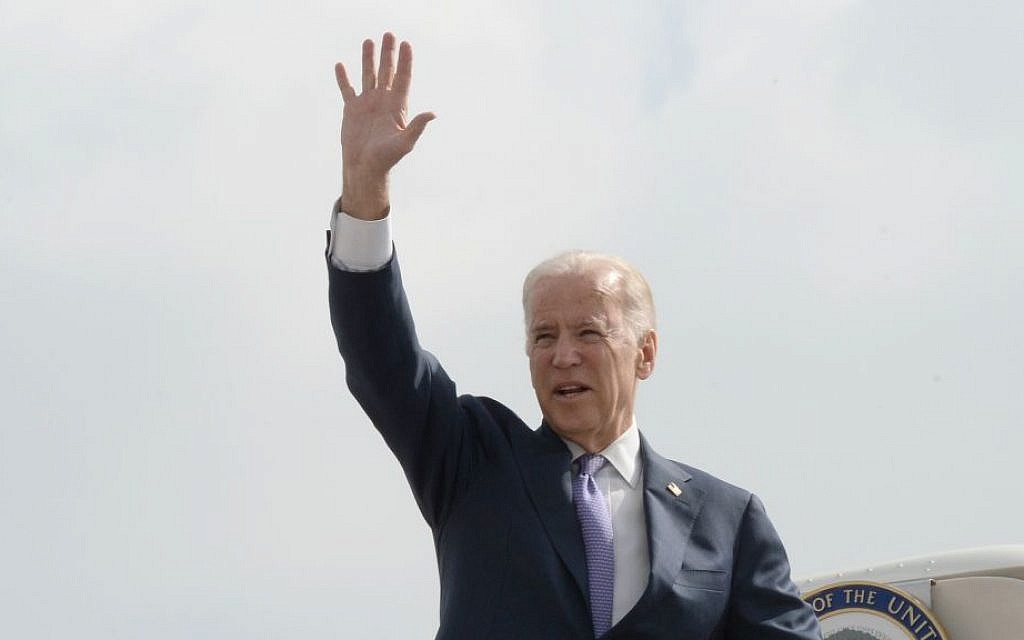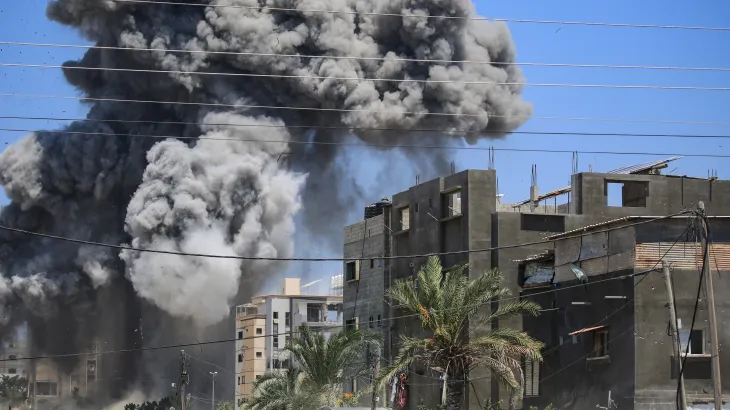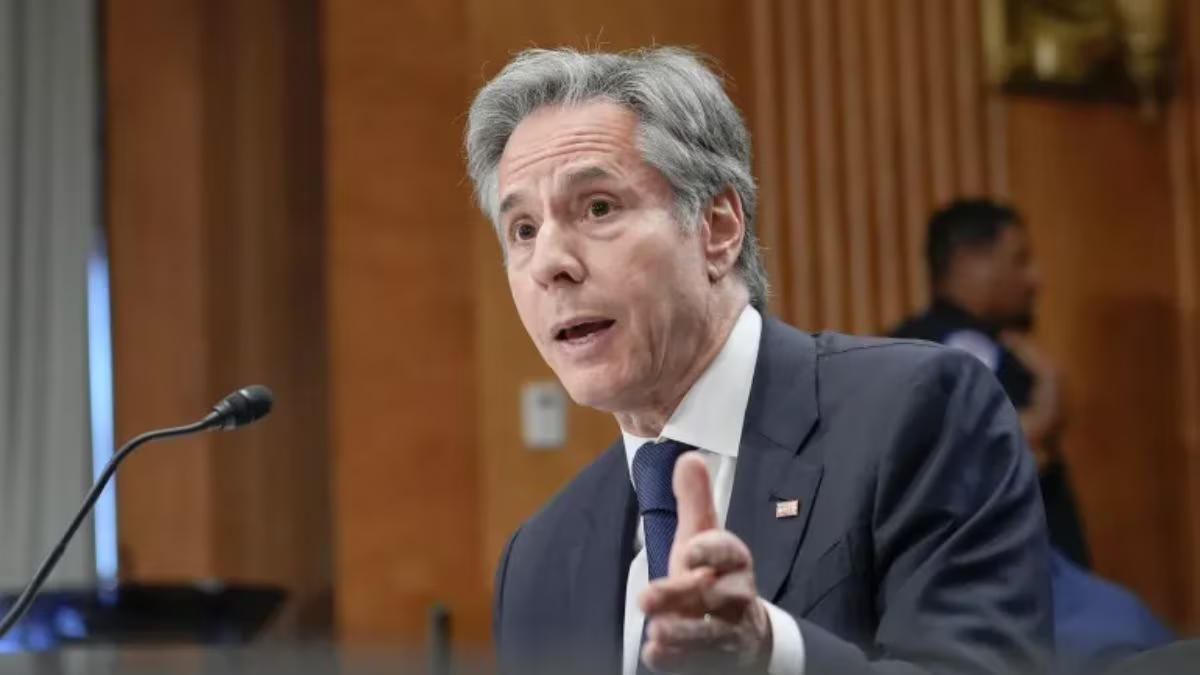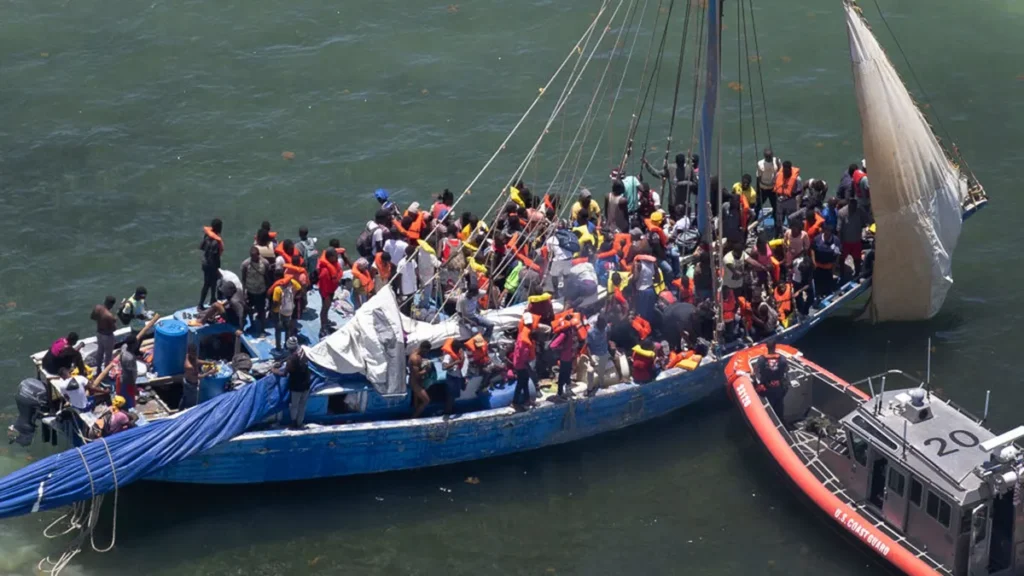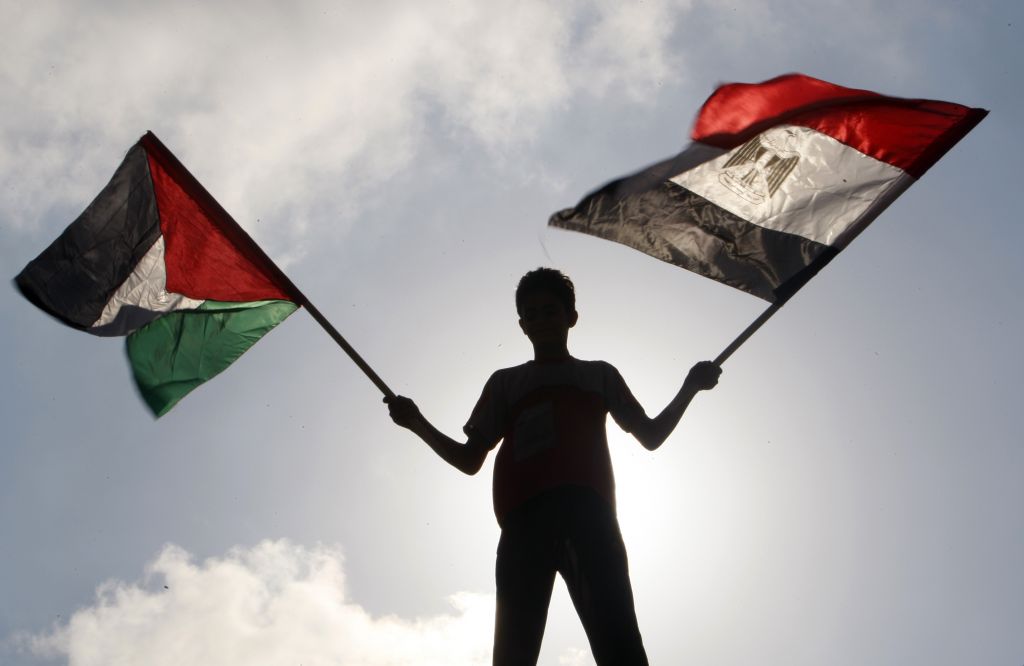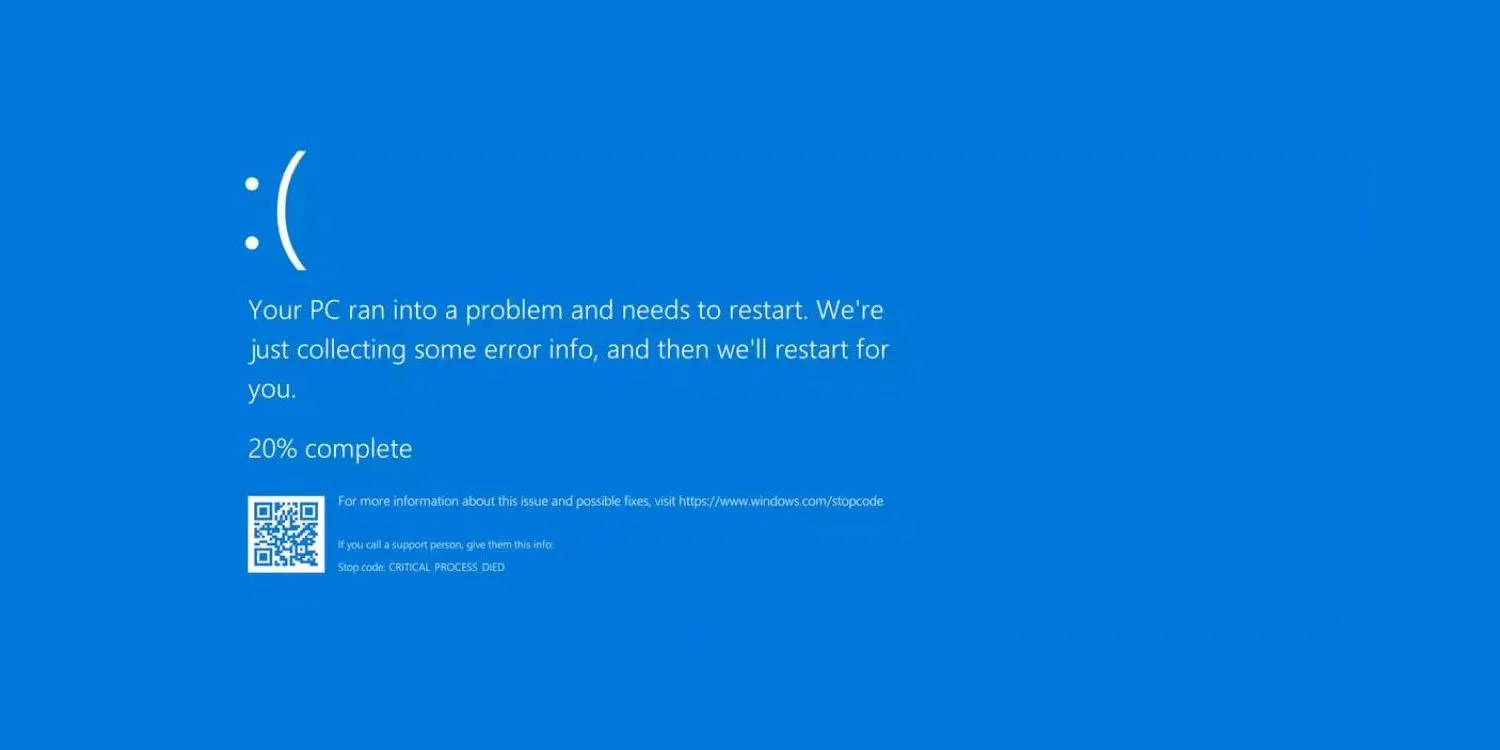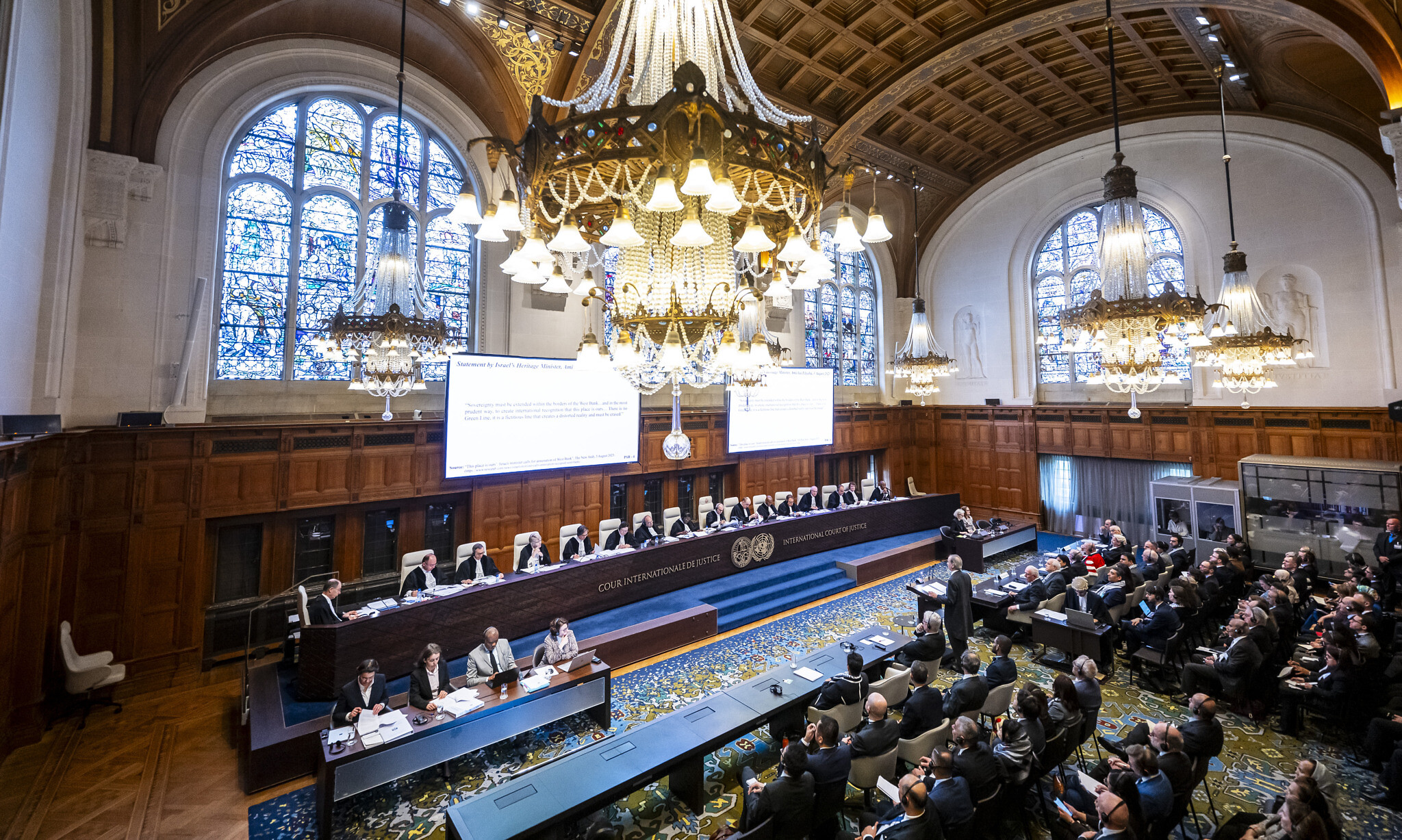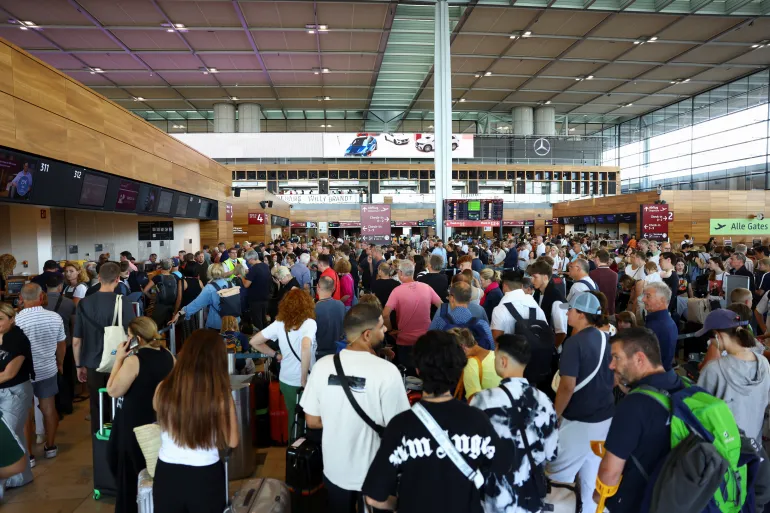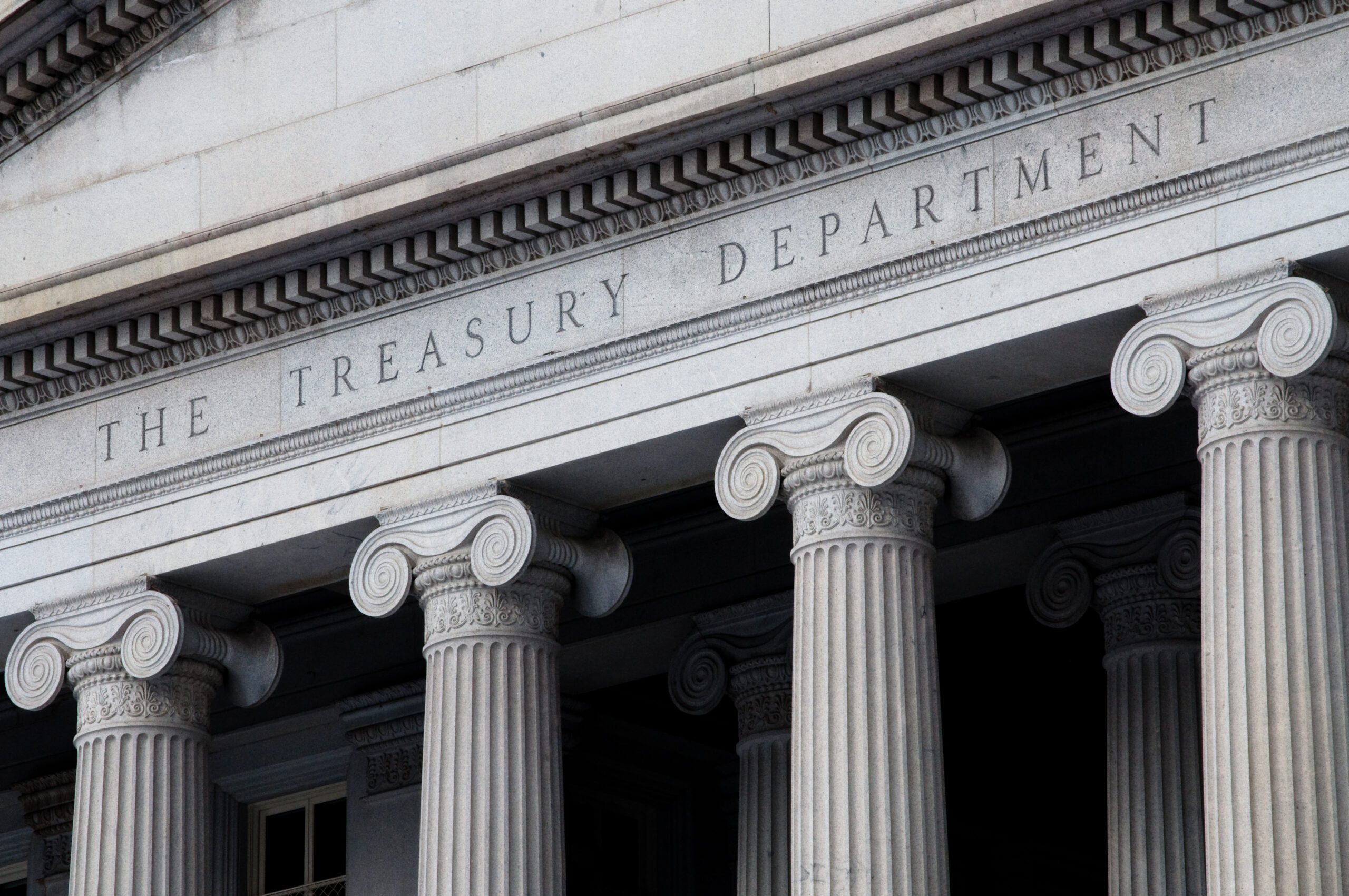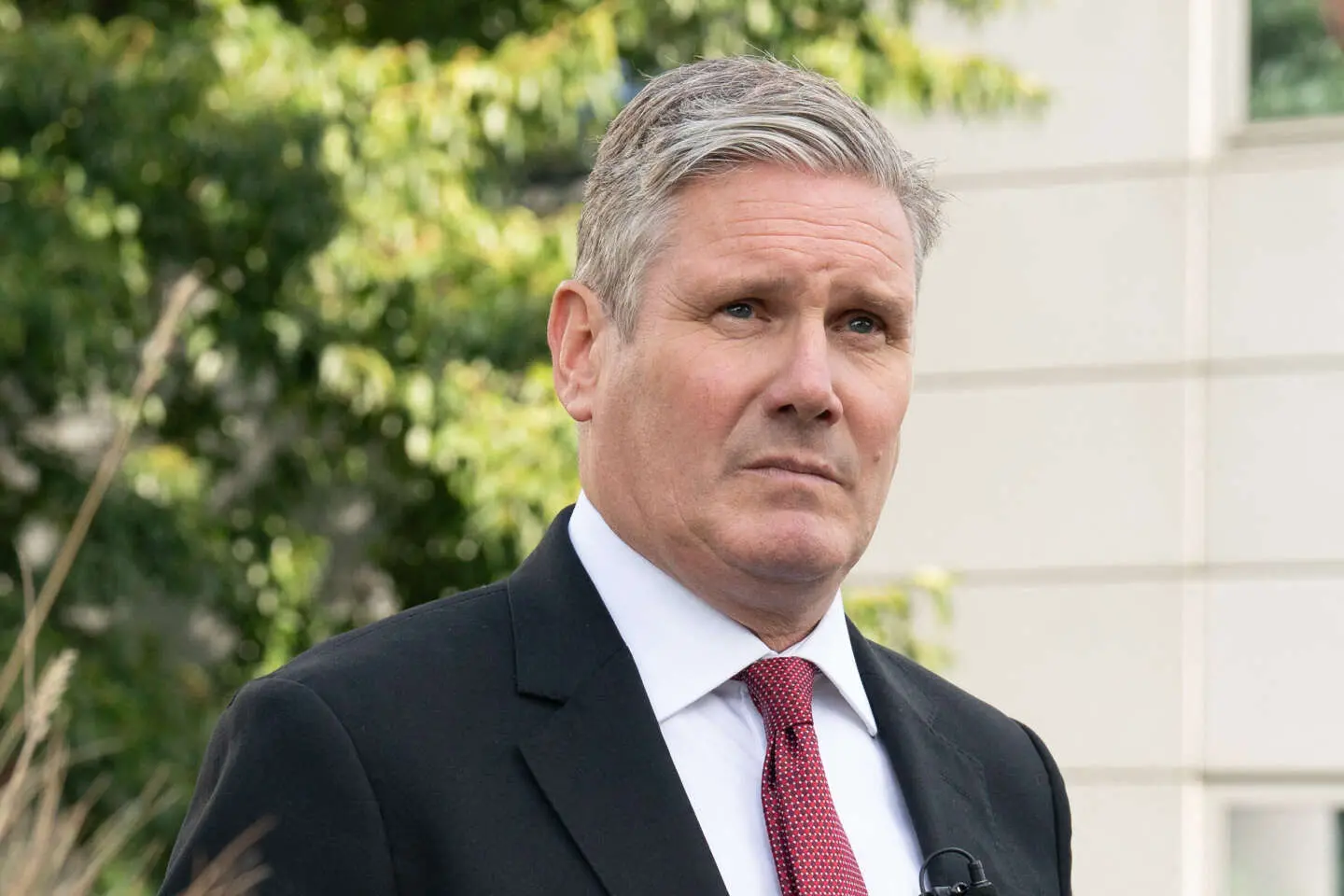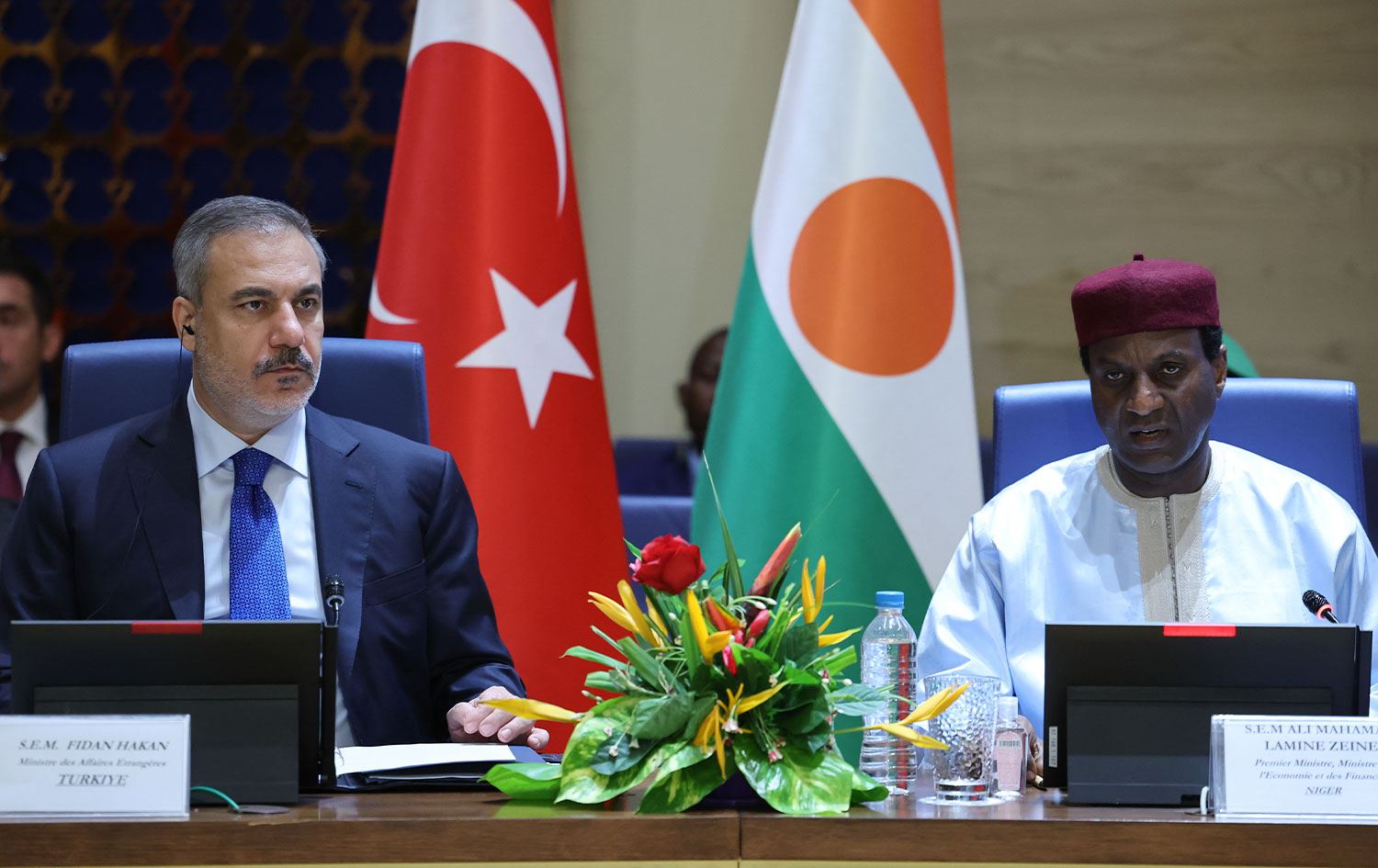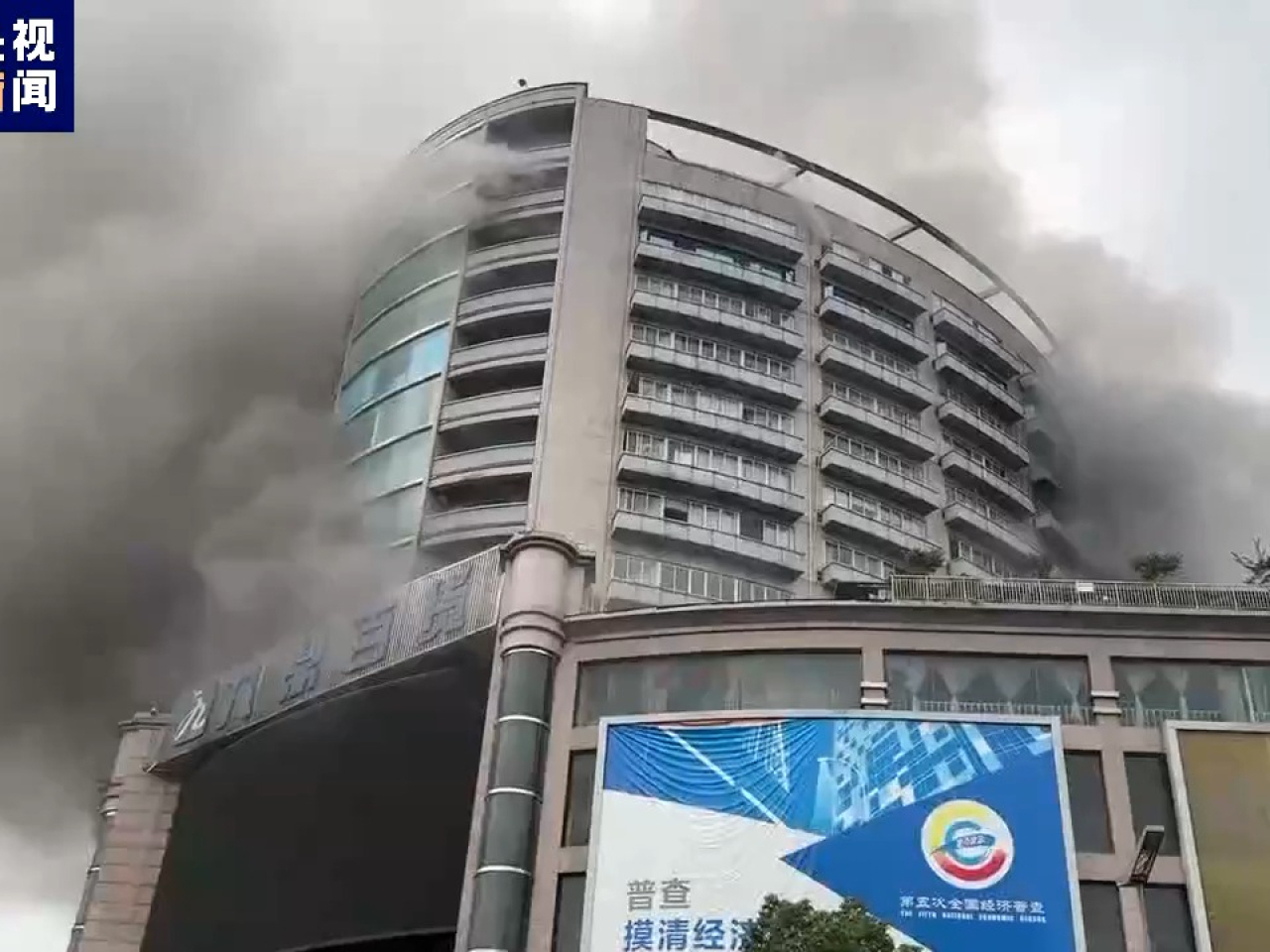Thousands demonstrate in Washington against Netanyahu visit
Thousands of people, including Jewish Americans, demonstrated in Washington on Wednesday as Israeli Prime Minister Benjamin Netanyahu addressed a joint session of the US Congress. They had descended on Capitol Hill, the seat of the US government, chanting “Free, Free Palestine” as some tried to block streets ahead of Netanyahu’s speech. Police wearing gas masks blocked the crowd, which was calling for an end to the war that has killed more than 39,000 Palestinians, from getting closer to the Capitol. Tall steel barriers ringed entrances to the complex, and security officers deployed by the score on foot, bicycle, and with dogs. Overnight, hundreds of protesters organised by a Jewish group staged a sit-in at a congressional office building, crying, “Not in our name.” The prime minister was greeted by Republican House Speaker, Mike Johnson, as he arrived in the afternoon at the Capitol, for a speech arranged weeks ago and instigated by the Speaker. “I think people are rageful that the United States government has the gall, after months and months of genocide, not to hold Benjamin Netanyahu accountable, but to continue to roll out the red carpet for him,” said demonstrator Zaid Khatib. Carrying posters saying “Wanted. War Criminal Benjamin Netayahu”, protesters demanded the prime minister’s arrest, as requested by the international criminal court’s chief prosecutor in May. One protester, who travelled from Maryland to take part in the demonstration, said it was important to show that not all US citizens support the government’s policies towards Israel. “They don’t support the policies of our elected officials. We are in a rogue kind of administration that are disconnected from the people,” said Michael Prentice. “I think it’s important to show, come out and show the world that the American people, our policies, are not popular with the American people, if that makes sense.” Inside Congress, dozens of high profile Democratic lawmakers decided not to attend Netanyahu’s speech, expressing their dismay over the civilian deaths and humanitarian crisis as a result of Israel’s military campaign in Gaza. The most notable absence was behind him. Vice President Kamala Harris, who serves as president of the Senate and traditionally would sit behind whatever dignitary is speaking, said a long-scheduled trip would keep her away.
French-Djibouti renew defense partnership agreement
After two years of negotiations, Macron and Guelleh have renewed the French-Djibouti defense treaty, reinforcing military ties.
Mexicans arrested in South African meth lab raid
On Tuesday, four men—two South Africans and two Mexicans—appeared in court but did not enter a plea
18 dead bodies recovered after plane crash in Nepal
18 bodies of passengers and crew have been recovered after a plane crashed on Wednesday in Nepal. Captain MR Shakya of the Saurya Airlines airplane was rescued and is under treatment at a hospital. The aircraft “crashed during takeoff” at the Tribhuvan International Airport (TIA) in the capital Kathmandu, the daily Kathmandu Post reported. Premnath Thakur, TIA spokesman, said the incident happened at around 11 a.m. (0515GMT). Among the 19 people were crew members as well and the plane was en route to the city of Pokhara in central Nepal. The Nepalese army led the rescue operations that are underway at the accident site.
Trash balloon from North ‘lands’ in South Korean presidential compound
Heightening tensions between the divided Koreas, a trash balloon allegedly sent from North landed in presidential compound in South Korea on Wednesday. “Nothing dangerous was found,” the Presidential Security Service told Seoul-based Yonhap News. The divided Koreas have been flown balloons carrying trash across the border in recent weeks. Seoul has also resumed blaring out propaganda through loud speakers towards North from the border.
Egypt-linked convicted corrupt US Senator resigns
Bob Menendez was acting as an agent for Egypt’s government bowing to pressure from fellow Democrats to give up the job.
Israel unhappy with Hamas-Fatah deal in China
Diplomatic tensions rise as Israel rejects a China-brokered deal that includes Hamas in Gaza’s governance.
Palestinian factions pledge to ‘end divisions’ during Beijing talk...
Palestinian factions have pledged to end divisions during their reconciliatory talks in Beijing, the Chinese Foreign Minister Wang Yi announced on Tuesday. The representatives inked the declaration “pledging to end division and strengthen unity.” Representatives from 14 groups of Palestinians have held talks in Beijing since Sunday. Video footage released by Chinese state media showed Wang walking along with the representatives of the Palestinian factions, including Hamas and Fatah, after their meeting held in Beijing.
UK’s migrant plan to Rwand criticized as costly failure
New home secretary reveals Rishi Sunak’s controversial Rwanda plan cost 700 million pounds in wasted taxpayer money.
South Africa stands firm with Palestine, Cuba, Western Sahara
Cyril Ramaphosa reaffirmed South Africa’s commitment to supporting Palestine Cuba and Western Sahara emphasizing his nation’s stance against oppression and subjugation.
Harris endorsement doesn’t seal Democratic nomination. What’s next...
When US President Joe Biden abruptly announced Sunday afternoon that he would be ending his bid to secure a second term in office, many were caught flat-footed. That included not only many voters around the nation, but White House staffers, senior Democrats and the Democratic National Committee, all of whom are now in what Biden’s former boss, ex-President Barack Obama, described as “uncharted waters.” Biden had long been unwavering in his determination to challenge Republican presidential nominee and former President Donald Trump in November despite mounting Democratic calls for him to step aside after he badly flubbed a high-stakes debate with Trump in June. The performance heightened already significant concerns about Biden’s mental acumen and his ability to defeat Trump at the ballot box as many Democrats consider this year’s election a make-or-break contest for the soul of American democracy. Even as the chorus grew, Biden’s insistence that he would be the party’s nominee was echoed by many in his inner circle who continued to insist in the days and even minutes running up to his surprise announcement that Biden would be the party’s nominee. Andy Bates, a senior spokesperson in the president’s press shop, denied a report Friday that Biden’s family was discussing a potential end to the re-election campaign. “Wrong. Keep the faith,” Bates said on X in response to the NBC News article. That sentiment continued to be run publicly by many senior Democrats and the Biden campaign, which just 45 minutes before the president posted a note to X announcing that he would be stepping aside solicited campaign donations from Democrats. – Endorsement of Kamala Harris does not cement her role as Democratic nominee In announcing his decision to end his re-election bid, Biden threw his weight behind Vice President Kamala Harris, offering her his “full support and endorsement” ahead of next month’s nominating convention. That does not make her the Democratic nominee, however. The party’s blessing will only come with the support of the majority of Democratic delegates during the Aug. 19-22 Democratic National Convention (DNC), and it is unclear who will be competing for the nomination outside of Harris, much less when and how candidates will seek to garner delegates’ support. Committee Chair Jaime Harrison has maintained that there is no automatic successor to Biden, emphasizing that the party would pursue what he described as an “orderly process” to select a nominee. “The work that we must do now, while unprecedented, is clear. In the coming days, the Party will undertake a transparent and orderly process to move forward as a united Democratic Party with a candidate who can defeat Donald Trump in November. This process will be governed by established rules and procedures of the Party. Our delegates are prepared to take seriously their responsibility in swiftly delivering a candidate to the American people,” Harrison said in a statement. “In short order, the American people will hear from the Democratic Party on next steps and the path forward for the nomination process,” he added. Those “next steps” remain a mystery to many, not least of which are senior DNC officials, who are all in the same boat with just four weeks until the convention begins. While it is possible that individual delegates will cast their ballots in Chicago during what would be known as an open convention, the prospect has been raised that the decision could be made well before that during a previously floated virtual roll call to meet Ohio’s ballot eligibility requirements. The party had planned as recently as Friday to nominate Biden virtually at some point between Aug. 1-7 in order to ensure that the Democratic nominee met a key deadline and was on Ohio’s ballot. It is unclear if Democrats will attempt to choose their nominee via a virtual vote to ensure they conform to a deadline whose standing is now unclear for several reasons, or if the matter will be deferred for an open convention that is not slated to begin until more than a week and a half later. A convention is considered “open” when no candidate has the majority of the delegates’ support. That has not happened in decades. All of the delegates that Biden secured during the Democratic primary are now free to throw their support behind a candidate of their choosing. While the president may have sought to influence many with his endorsement of Harris, they are not obligated to support her. A later open convention would allow prospective candidates a bit more time to court delegates ahead of the convention. Amid the uncertainty, all eyes are slated to be fixed on this week’s expected meeting of the DNC’s rules committee. – Democrats face wild field for potential nominee with just 4 weeks until convention California Gov. Gavin Newsom, thought to be one of the leading Democrats for the nomination, dismissed any speculation that he would compete for the role, announcing his endorsement of Harris on Sunday night. “With our democracy at stake and our future on the line, no one is better to prosecute the case against Donald Trump’s dark vision and guide our country in a healthier direction than America’s Vice President, @KamalaHarris,” Newsom wrote on X. Other top-tier potential candidates have kept their cards close to their chest, not indicating one way or another how they will proceed. That includes billionaire Illinois Gov. JB Pritzker, Michigan Gov. Gretchen Whitmer, Pennsylvania Gov. Josh Shapiro, West Virginia Sen. Joe Manchin, and California Representative Ro Khanna. Whoever wins the nomination will need the support of the majority of the Democrats’ roughly 3,900 pledged delegates. An additional group of about 700 superdelegates do not participate in a first roll call vote. They can take part in later rounds of balloting if no candidate secures a majority on the first vote. A lack of a clear nominee after a first-round vote would set up what would be known as a brokered convention, allowing the superdelegates to take part in successive balloting until one candidate emerges with a clear majority.
Russia says it downed 75 drones launched by Ukraine overnight
Russia said early Monday that it downed a total of 75 drones launched by Ukraine in an attack on the country’s territory overnight. A statement by the Russian Defense Ministry said the country’s air defense systems intercepted and downed 47 drones over the Rostov region, which borders Ukraine’s eastern Donetsk and Luhansk regions. The statement further said 17 drones were shot down over the Black Sea and the Sea of Azov, while a drone was downed over the Belgorod, Voronezh, and Smolensk regions, respectively. Eight drones were also downed over the Krasnodar region that borders the Rostov region to the north and the Crimean Peninsula to the west, which Moscow illegally annexed in 2014. Rostov Governor Vasily Golubev said in a statement on Telegram that there were no casualties in his region due to the drone attack, indicating dry vegetation caught fire in several areas which have since been extinguished. Elsewhere, Krasnodar’s regional administration reported on Telegram that an oil refinery in the town of Tuapse was damaged due to falling debris from the downed drones. The seaside town is located about 116 kilometers (72 miles) northwest of the Russian port city of Sochi. Meanwhile, local authorities in Belgorod, Voronezh, and Smolensk have not reported any casualties or damages in the respective regions. Ukrainian authorities have not yet commented on the claims, though Kyiv has previously voiced that such attacks are in response to similar attacks against its energy infrastructure by Moscow.
US President Biden announces he wont seek reelection
US President Joe Biden announced on social media Sunday that he will not seek re-election
New COVID-19 variant spreading in Australia
Health experts warn it could spread faster than previous variants
20 Palestinians killed as Israel bombards Gaza
Israeli airstrikes target areas in central, northern Gaza Strip
Blinken: Iran likely 1-2 weeks from nuclear weapon breakout
US policy is aimed at preventing Iran from acquiring nuclear weapon ‘through diplomatic ways’, says top US diplomat
40 migrants dead after boat catches fire off Haiti
At least 40 Haitian migrants died and several others were injured after a boat they were traveling in caught fire off Cap Haitien, in the northern coast of Haiti, the UN International Organization for Migration (IOM) said Friday. “IOM deeply laments the death of at least 40 migrants after a boat caught fire off the coast of Cap Haitien, Haiti. We extend our heartfelt condolences to the migrants’ families and are working to assist the survivors of this tragedy,” the IOM said in a press release. The boat that caught fire with more than 80 Haitians left the port of Labadee on Wednesday en route to the Turks and Caicos Islands. Forty-one migrants who were rescued by the Haitian Coast Guard are currently receiving medical care. Eleven were hospitalized for treatment, including burns. The fire apparently started when two drums of gasoline ignited, Civil Protection official Jean Henry-Petit said. The captain of the boat died in the tragic accident. “This devastating event highlights the risks faced by children, women, and men migrating through irregular routes, demonstrating the crucial need for safe and legal pathways for migration.” said Gregoire Goodstein, IOM’s chief of mission in the country. Haiti has been grappling with a wave of violence by gangs that are terrorizing the population with killings, kidnappings, rapes and attacks. Violent gangs control up to 80 per cent of the country´s capital of Port-au-Prince. The UN estimates that about 580,000 people have been forced to flee their homes since March due to the latest surge of violence . “For the vast majority of Haitians, regular migration is an extremely challenging journey to consider, let alone pursue, leaving many seeing irregular migration as their only option, a particularly life-threatening one in most instances,” said the IOM. Countries in the region, including the United States, the Bahamas, the Turks and Caicos Islands, and Jamaica, have reported a growing number of boats coming from Haiti. The IOM says that more than 86,000 migrants have been forcibly returned to Haiti by neighboring countries this year. The Haitian police have said they are searching for the people responsible for organizing the clandestine trips.
Egypt, Kuwait back ICJ on Palestinian self-determination
The ICJ demands Israel evacuate settlements and end its occupation of Palestinian territories.
CrowdStrike at center of global IT outage
US-based cybersecurity firm is known for detecting cyberattacks on US, criticizing Microsoft’s security policies
UN court rules Israel’s occupation of Palestinian land is ‘illegal...
The UN’s top court has declared Israel’s decades-long occupation of Palestinian territory illegal urging an immediate end to the occupation and settlement activities.
Global IT outage causes chaos
A massive technology outage has disrupted businesses and institutions in multiple countries, throwing airports, airlines, rail companies, government services, banks, stock exchanges, supermarkets, telecoms, health systems and media outlets into chaos. The cause of the outage was not immediately clear, but it came hours after Microsoft said it was addressing an issue affecting access to Microsoft 365 apps and services. Some experts attributed the disruption to CrowdStrike, a cybersecurity firm whose software is used by industries around the world to protect against hackers and outside breaches. The problem appeared to result in crashes of machines running the Microsoft Windows operating system. CrowdStrike said in a recorded phone message that it was aware of reports of Microsoft’s Windows operating system crashing. Reporting from London, Al Jazeera’s Jonah Hull said, “CrowdStrike seems to have had some sort of mandatory update to its software that went horribly wrong.” The company had reported that the issue was related to its Falcon sensor product, engineers identifying a “content deployment problem”, said Hull. “It has been a quite extraordinarily dysfunctional, disruptive morning from an IT point of view – or indeed mid-afternoon if you’re in Australia where the first signs of a real problem began to emerge, according to Hull. “Essentially it happens as you’re sitting in front of your terminal. If your terminal is a Microsoft Windows terminal, it suddenly goes to a blank blue screen. It’s called the ‘blue-screen-of-death’ error. You are locked out of your operating system,” Hull said. At the time of reporting, some of the malfunctioning business, companies and computer app systems were beginning to return to normal service, including Sky News in the United Kingdom, which was down for an hour in the morning. The outages rippled far and wide, with transport systems around the world among the hardest hit. In the United States, major airlines Delta, United and American Airlines were grounded on Friday morning due to a communication issue, according to an update by the Federal Aviation Administration. In Australia, flight information screens at Sydney airport went blank. The airport said that flights were arriving and departing but that travellers should expect delays. “We have activated our contingency plans and deployed additional staff to our terminals,” it said in a post on X. Melbourne airport said that check-in procedures for some airlines had been affected. “Passengers flying with these airlines this afternoon are advised to allow a little extra time to check-in. Please check with your airline for flight updates,” it said in a post on X.
US destroys 2 Houthi missiles, 4 UAVs in Yemen
The US military destroyed two surface-to-air missiles (SAMs) and four uncrewed aerial vehicles (UAVs) on the ground in Houthi-controlled areas of Yemen, US Central Command (CENTCOM) said early Friday. “It was determined these weapons presented an imminent threat to U.S., coalition forces and merchant vessels in the region,” CENTCOM wrote on X. “These actions were taken to protect freedom of navigation and make international waters safer and more secure,” it added. The Houthis have been targeting Israeli-linked cargo ships in the Red Sea and Gulf of Aden in solidarity with the Gaza Strip, which has been under an Israeli onslaught since Oct. 7 last year. The Red Sea is one of the world’s most frequently used sea routes for oil and fuel shipments. Earlier this year, US Defense Secretary Lloyd Austin announced a multinational mission, Operation Prosperity Guardian, to counter Houthi attacks.
US sanctions Sierra Leonean migrant smuggler
Thousands of migrants from Asia and Africa allegedly smuggled into the U.S. by a network led by a Sierra Leonean man.
UK announces $109M Africa aid for migration crisis
Prime Minister Keir Starmer unveiled a nearly $109 million fund for humanitarian and development projects in Africa and the Middle East.
Pelosi supports Schiff’s call for Biden to step aside in US elex
White House officials disclose that Nancy Pelosi backs Adam Schiff’s call for Joe Biden to step aside in the presidential race.
Niger, Turkey deepen ties in energy, defense
Turkey and Niger sign a deal to develop Niger’s oil and gas fields, deepening their partnership after Niger expels Western forces.
Death toll climbs to 16 in China shopping mall fire
Authorities say 10 more dead bodies recovered from building.





